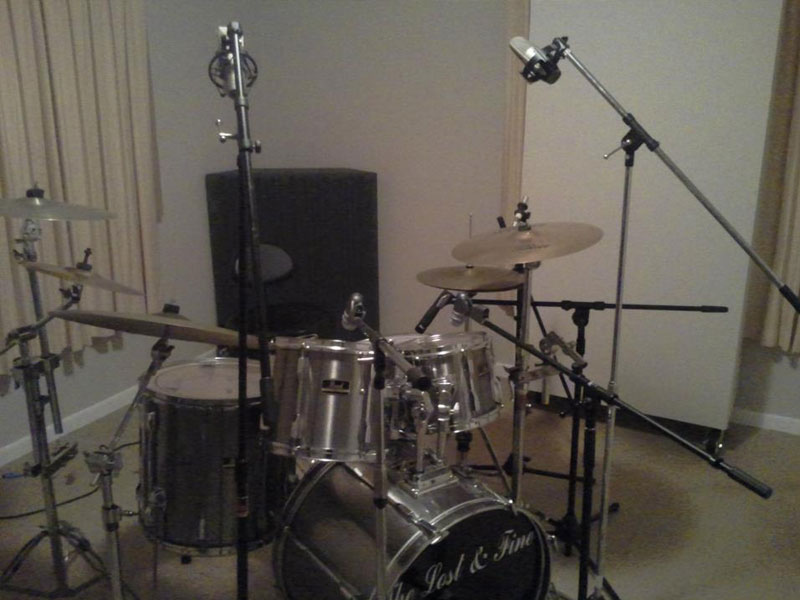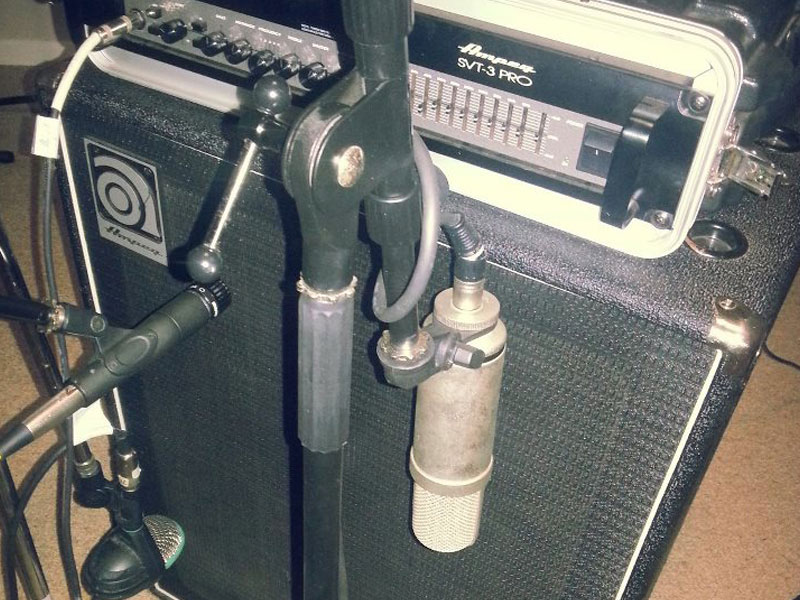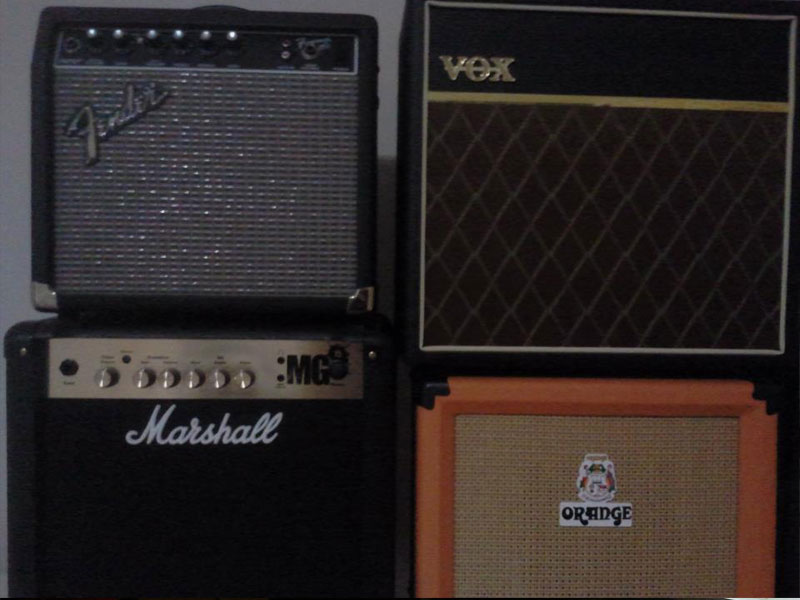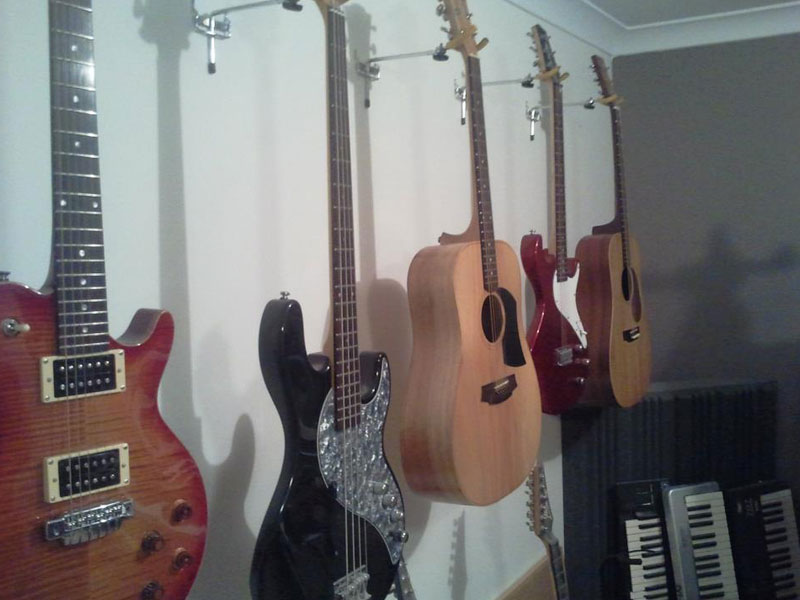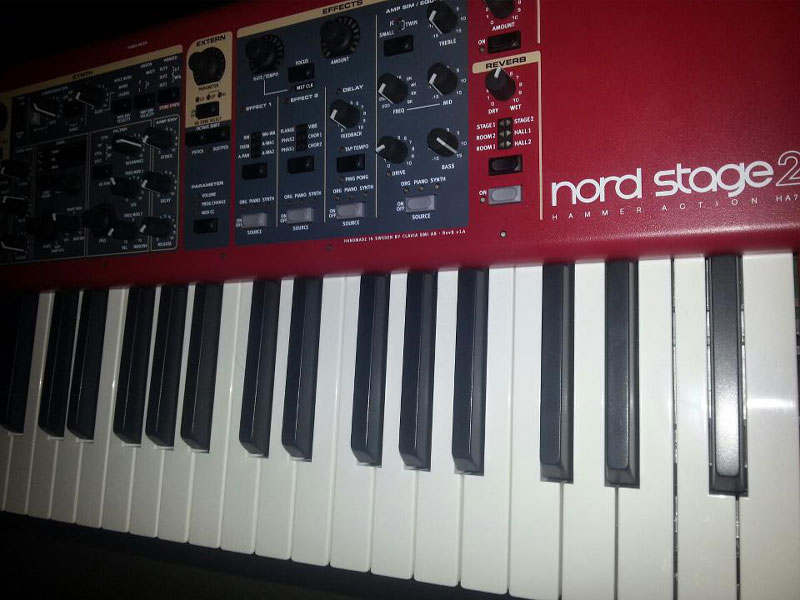
Solo Artists
Most of the people we work with at Analog Heart are solo artists. For a variety of reasons, solo artists tend to write better songs than bands, and if we find a good voice and good song, we’ll jump at the chance to record it.
If you’re a solo singer / songwriter, you may have never played your songs with a band, or even outside of your bedroom. And although the song is simply you and guitar / piano, you probably have a vision of how you want it to sound – drums, backing vocals, orchestra. Or perhaps you have very little idea how the song should be fleshed out. Perhaps you have only written a vocal part, and you need help to create the music behind it. Or perhaps you want some music to write to. Or maybe, you want someone to write something for you to sing.
Whatever you’re after as a solo artist, Stuart Stuart is highly experienced with taking an acoustic demo and turning into an epic production. Or a stripped back low key production. Whichever happens to suit. He is also a songwriter with many credits, who can write with you, or even for you. He can make an entire music track to surround your vocal ideas, or he can create a sonic landscape for you to write something to.
Essentially, whatever the gap is between where you are now, and the ultimate sound you have in mind for your music, Stuart will fill it. That includes any kind of instrument, or backing band, and any kind of style.
And remember, once your music is recorded, no matter who’s playing on the recording, you are still free to put together a band and market your music under a band name. Stuart tends to take the approach of ‘make the most exciting record you can first, then worry about how to play it live’. He will give you plenty of ideas on how you can take the music ‘on the road’ once the tracks are finalised.
Pre-Production
Unlike pretty much every other recording studio on the planet, our goal is not to simply record you ‘as you are’. We want to make a significant improvement to every part of your music, raise the standards and create the recording that is the difference between where you are now and where you want to be.
Stuart will have ideas on every aspect of what you’re doing, from which songs to record, to the lyrics, to the tempo, to the arrangement, the key, the melodies, the chords, the drum groove, the guitar sound, the vocals, the genre it all falls into and everything in between. So be prepared for some pretty frank constructive criticism and advice. Ultimately, it is YOUR MUSIC so your opinion is the one that wins. But be prepared for that opinion to change as you get a new perspective.
Generally, Stuart will want to hear almost everything you’ve written that you think is worth hearing. It’s not unusual for Stuart to listen to 20 songs, even if the plan is to record just 3.
Once you and Stuart decide which songs are the strongest, he’ll give you plenty of ideas on how they could be stronger – lyrics, arrangement, melody, feel, everything. He’s going to throw up every single idea and possible change he can think of – some will make sense to you straight away, some will take a while to get used to, and some will feel completely wrong. It’s all good – it’s the give and take of ideas that leads to something great.
Remember, the ultimate choice about everything is up to you. If Stuart suggests a change, it’s only because he thinks it’s going to help you get noticed. So as much as possible, come open-minded. But if it feels totally wrong for you, PLEASE speak up – we’re collaborating here and your satisfaction is the first priority.
After this process, Stuart may leave you to work on the changes. In general, he mightsuggest a few specific starting points (like chords, lyrical ideas, general melodic direction), but it will be up to you to actually write the songs. On this first day, you’ll also be tossing up where you should go style-wise. It comes down to the kind of music you write, your age, the way you look, your musical tastes, and where the opportunities in the industry are. Once again, Stuart has a world of knowledge you can draw from, and will have plenty of advice for you.
Do Your Songs Have Bridges?
One thing that separates accomplished songwriters from beginners is the ability to write a good bridge. A bridge is the section, usually after the second chorus which happens once and takes the song somewhere different.
Songwriters often have a verse, a chorus, and an instrumental based around one of those two parts. It may work ok, but more often than not, a song with too few parts can get tedious, and not give punters a whole lot of reason to hit ‘repeat’. If your songs are lacking bridges, and you know they need variety, start messing around with some ideas before you get here. Listen to a bunch of songs in your style with good bridges to give you some inspiration – you’ll know the bridge when you hear it!
Lyrics – Re-Write & Edit Before You Come!
Songwriters often go with their first idea when writing lyrics, and never re-visit the words again. Remember, this is your shot, and a chance to get your music AND lyrics heard by the industry. If you know that you can write better lyrics, start revising them now. If things go well, you (and your fans) will be singing these words for years to come!
Choosing A Tempo
Getting the tempo just right is ultra-important for every song – a few BPM’s too slow and the song will drag, too quick and the groove might get lost. Stuart will spend a fairly long time working this out with you – maybe more time than you might expect.
Practically every song you hear on the radio these days is recorded at one tempo start to finish. This allows you to edit everything easily – you can copy over good parts and repeat them, you can move things around simply, and generally save a huge amount of time. This gives you more time to create, and get the best take.
If your song requires tempo or time signature changes, Stuart can definitely make that happen, though there are VERY few times when that much jerking around actually helps the song. Speeding up the chorus 15 BPM, and slowing down the bridge 25 may seem tricky, but it generally adds up to an awkward listening experience, and something pretty anti-commercial. But if it sincerely works, no problem.
Deciding On The Arrangement
Before getting too deep into the recording Stuart will make sure the arrangement is in place.
A typical arrangement might be – Intro, Verse 1, Pre-Chorus, Chorus, Verse 2, Pre-Chorus, Chorus, Bridge, Instrumental, Chorus, Chorus Repeat, Outro. Once this is decided on, Stuart lays out the arrangement on the screen, plotting the exact length of each part in bars. This way, you’ll know precisely how long the song is going to be, when the first chorus hits, which parts each instrument has to record, which parts can be cut and pasted etc.
The arrangement can change, right up until the final mix – choruses can be doubled, verses can be halved. But Stuart will want to ensure the song is basically working for its full length before recording.
Drums
The approach to drums will very much depend on the style of music. It might be programmed drum kit stuff, drum loops, fat 808 beats, or a live drummer. Stuart will be show you a variety of ways the drums could go, and let you decide what appeals. If you don’t have much experience working with drums, you don’t have to worry – Stuart has been recording, programming and even playing drums for more than 20 years. If you’re totally clueless about it, he can do it all. If you have some strong ideas, he can make them happen for you.
Recording Bass Guitar
Stuart is a pretty accomplished bass player, so if you don’t play, don’t worry. If you want to have an input into the bass line or play it yourself, you’re very welcome. If you want to sit back and let Stuart do his thing, that’s fine too.
Recording Electric Guitar
Stuart has been playing guitar for more than 20 years, so great guitar sounds and parts are definitely his passion. If you have a great amp that you’re fond of, you should make an effort to bring it. Bring any electric guitars you have too. If you don’t have anything, Stuart has plenty of guitars and gizmos to get the right sound.
Acoustic Guitar
If your music is likely to include acoustic guitar, make sure you bring any acoustics you have, even old beat up things – sometimes cheap acoustics can have just the right sound for a track. Just remember to string it up with fresh strings before you come. The studio has three very nice acoustics on hand – a Takamine, a Martin and a Cole Clark. We always mic acoustics – acoustic pick-ups just never seem to cut it.
Synths & Keyboards
If you are a keyboard player by trade, you should bring your gear. We have a few modules, a small midi control synth, and a full 88 weighted key electric piano. We also have lots of soft-synths – Omnisphere, Sampletank, Trillian, Orchestral Libraries and plenty more. We won’t be lacking in sounds! If you don’t play keys, but would like to hear synth / organ / piano / strings / whatever on your tracks, Stuart is an experienced keys player, and can play whatever you need.
Other Players – Brass, Strings etc
We’ve recorded all sorts of instruments, trumpets, saxes, trombones, harmonica, violins, pedal steel, cellos, full size orchestral harps, percussionists. If you play one of these, simply bring along your instrument and all relevant accessories, and we’ll take care of the rest.
Percussion
We have a nice selection of shakers and tambourines on hand, plus a gazillion samples Stuart can quickly load up and try. Triangles, bell trees, guiros, cabasas, congas, all that stuff.
If you have any percussion instruments, bring them and see if they find a place.
Lead Vocals
Stuart is known as one of the best vocal producers in Australia, and he certainly has a knack for recording an absolutely flawless vocal track. We’ll be using every trick in the book to make sure you leave with a radio ready vocal that you feel totally proud of. In general, Stuart records the song piece by piece, first the verses, then the pre-choruses, then bridges, then choruses, then ad libs etc. Often, we’ll do anything up to fifteen takes of each section.
Each time you sing a take, Stuart will be chopping it up and hanging on to the best bits.
Eventually, he’ll piece together a take and give you a listen.
This is pretty standard practice for most topline producers. Don’t worry – he’ll be giving you plenty of feedback as you go – explaining what he likes, what he thinks can improve, and giving you unlimited time to get things right.
Don’t be concerned about getting everything straight off – your patience will run out a long time before Stuart’s, and he is absolutely committed to getting the very best out of you. If band mates or friends are with you, it might be worth asking most of the guys to head off and do something else while you’re recording. If they’re not going to contribute anything, it’s better to have less people in the room, so you can let loose.
Backing Vocals
Backing vocals and harmonies are a pretty essential part of most music, so Stuart will be planning on it. If you haven’t had experience singing harmony vocal, we’ll see if we can give you a crash course. Some people pick it up naturally – some people can sing along to the harmony when they’re singing with the radio. It just seems to be something you’re born with. You probably already know if it comes easy for you.
If you’re having a lot of trouble, Stuart can work out the harmonies on guitar or keyboard and teach them to you. We often use a harmoniser which can automatically works out a chipmunky pitch-shifted harmony which you can sing along with. One way or another, the backing vocals will be tight and right.
A Note About Sounds & Mixing
Stuart is an experienced engineer and has produced all types of music, covering all types of sounds. Even so, everyone has their own idea of a great drum sound, great guitar sound etc. It’s a good idea to bring some audio references to illustrate the kind of sound you’re after. He can use those to reference off when setting up drum mics, choosing amp sounds, and mixing the whole song.
